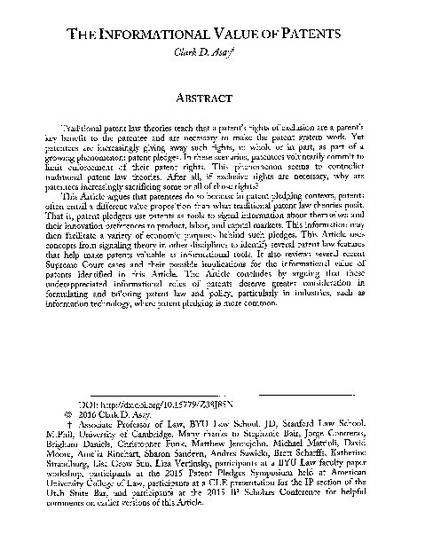
- Patents,
- patent pledge,
- innovation,
- Tesla,
- IBM,
- Microsoft,
- Twitter,
- intellectual property,
- Nautilus,
- Alice,
- CLS Bank
Traditional patent law theories teach that a patent’s rights of exclusion are a patent’s key benefit to the patentee and are necessary to make the patent system work. Yet patentees are increasingly giving away such rights, in whole or in part, as part of a growing phenomenon: patent pledges. In these scenarios, patentees voluntarily commit to limit enforcement of their patent rights. This phenomenon seems to contradict traditional patent law theories. After all, if exclusive rights are necessary, why are patentees increasingly sacrificing some or all of those rights?
This Article argues that patentees do so because in patent pledging contexts, patents often entail a different value proposition than what traditional patent law theories posit. That is, patent pledgers use patents as tools to signal information about themselves and their innovation preferences to product, labor, and capital markets. This information may then facilitate a variety of economic purposes behind such pledges. This Article uses concepts from signaling theory in other disciplines to identify several patent law features that help make patents valuable as informational tools. It also reviews several recent Supreme Court cases and their possible implications for the informational value of patents identified in this Article. The Article concludes by arguing that these underappreciated informational roles of patents deserve greater consideration in formulating and tailoring patent law and policy, particularly in industries, such as information technology, where patent pledging is more common.
Clark D. Asay, The Informational Value of Patents, 31 Bᴇʀᴋᴇʟᴇʏ Tᴇᴄʜ. L.J. 259 (2016).